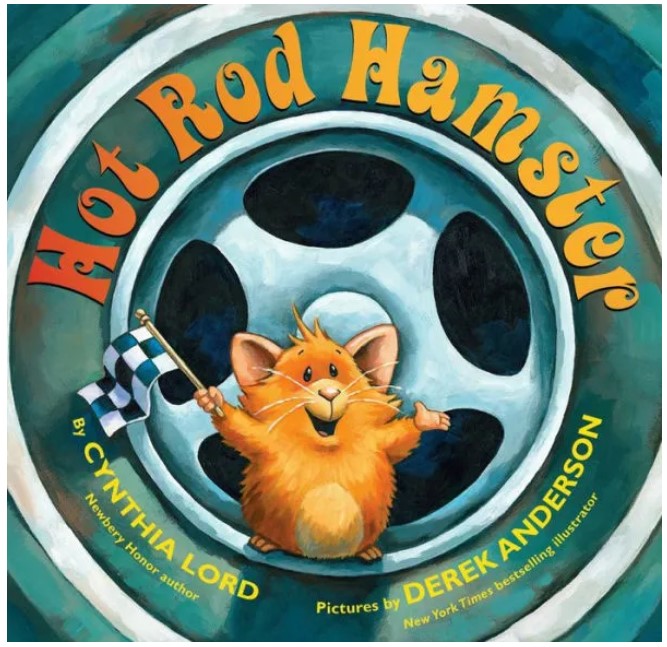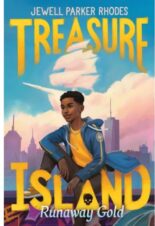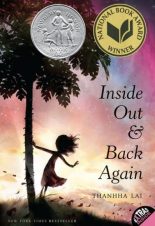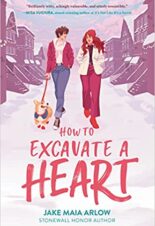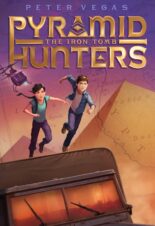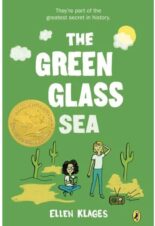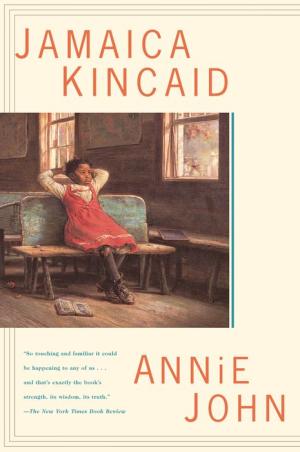
Buy This Book
“I could not be sure whether for the rest of my life I would be able to tell when it was really my mother and when it was really her shadow standing between me and the rest of the world,” Annie John. –Annie John
Annie John
by Jamaica Kincaid
AR Test, LGBTQ, Teaches About Culture
11+
Score
5.9
159
Annie John is a young, genius schoolgirl who wants to grow up to be just like her mother. Annie finds her mother beautiful – physically and internally – and her greatest wish is to stay forever with her, in their matching dresses, repeating their familiar daily routine of preparing dinner and washing clothes. They even share the same name: Annie. However, as young Annie starts to come of age, she is hit with the realization that she and her mother are not so similar after all. When Annie points out a fabric to make a pair of dresses for them both, her mother replies, “You are getting too old for that . . . You just cannot go around the rest of your life looking like a little me.”
Annie’s world crumbles. As she advances to a new school, the differences between Annie and her mother become more apparent. Annie likes girls – especially those who don’t have to bathe and comb their hair every day like Annie is forced to. She likes to play marbles – even though her mother forbids it, since it isn’t ladylike. And Annie steals. To have what she wants, Annie is forced to steal things like trinkets, money, and marbles. She begins to resent her mother’s strict ways and desires her own, free existence.
When Annie falls ill for a long time, she is nursed back to health by her mother. After which, she leaves her family in Antigua behind to go to England to become a nurse, since she “would have chosen going off to live in a cavern and keeping house for seven unruly men rather than go on with [her] life as it stood.”
While Annie’s young teenage rebelliousness sounds familiar to many, she struggles deeply with the divide between the life she wants and the life her mother wants for her. Annie says, “In the year I turned fifteen, I felt more unhappy than I had ever imagined anyone could be. My unhappiness was something deep inside me, and when I closed my eyes, I could even see it . . . It took the shape of a small black ball, all wrapped up in cobwebs. I would look at it and look at it until I had burned the cobwebs away, and then I would see the ball was no bigger than a thimble, even though it weighed worlds.”
Annie John is not a difficult story to read in terms of language or length, but as a story it is tough to swallow since it is about growing up, which comes with the heavy realization that you must become your own being. Mostly, the story focuses on events from Annie’s life that are narrated rather than her depression and related illness. These topics are not discussed in detail, rather left open for the reader to think about.
Annie John is not told chronologically, which can be confusing at times. This story is historical fiction and showcases some of the culture of Antigua, an island in the Caribbean, whose native population has been impacted by colonization. This is most apparent in the strict gender norms emphasized by Annie’s mother and the teachings in Annie’s school. This story is wonderfully crafted. While these issues seem like major ones, they are carefully blended into Annie’s life so subtly that the reader can fully understand what it’s like to live as Annie John. The events of the story are personal to Annie’s life, however, the sadness that comes with growing older is universal. Because of that, this story is timeless and a must-read for those who seek to understand a genuine, flawed character, as she escapes from her restrictive past and sails to a new future.
Sexual Content
- The schoolgirls wonder when their breasts will grow larger. Annie tells the reader, “On our minds every day were our breasts and their refusal to budge out of our chests. On hearing somewhere that if a boy rubbed your breasts they would quickly swell up, I passed along this news. Since in the world we occupied and hoped to forever occupy boys were banished, we had to make do with ourselves.”
- Later, Annie thinks about spending time with her friend, Gwen, who she is in love with: “Oh, how it would have pleased us to press and rub our knees together as we sat in our pew . . . and how it would have pleased us even more to walk home together, alone in the early dusk. . . stopping where there was a full moon, to lie down in a pasture and expose our bosoms in the moonlight. We had heard that full moonlight would make our breasts grow to a size we would like.”
- The Red Girl, one of Annie’s crushes, pinches her, then kisses her. “She pinched hard, picking up pieces of my flesh and twisting it around. At first, I vowed not to cry, but it went on for so long that tears I could not control streamed down my face. I cried so much that my chest began to heave, and then, as if my heaving chest caused her to have some pity on me, she stopped pinching and began to kiss me on the same spots where shortly before I had felt the pain of her pinch. Oh, the sensation was delicious – the combination of pinches and kisses. And so wonderful we found it that, almost every time we met, pinches by her, followed by tears from me, followed by kisses from her, were the order of the day.”
Violence
- Annie torments a girl she likes. “I loved very much – and used to torment until she cried – a girl named Sonia . . . I would pull at the hair on her arms and legs – gently at first, and then awfully hard, holding it up taut with the tips of my fingers until she cried out.”
- Annie recounts an incident with one of her friends. “In a game we were making up on the spot, I took off all my clothes and he led me to a spot under a tree, where I was to sit until he told me what to do next. It was long before I realized that the spot he had picked out was a red ants’ nest. Soon the angry ants were all over me, stinging me in my private parts, and as I cried and scratched, trying to get the ants off me, he fell down on the ground laughing, his feet kicking the air with happiness.”
Drugs and Alcohol
- None
Language
- After Annie’s mother sees her talking to boys, she calls Annie a slut. Annie narrates the event like this: “My mother said it had pained her to see me behave in the manner of a slut in the street and that just to see me had caused her to feel shame. The word ‘slut’ was repeated over and over until suddenly I felt as if I were drowning in a well but instead of the well being filled with water it was filled with the word ‘slut,’ and it was pouring in through my eyes, my ears, my nostrils, my mouth. As if to save myself, I turned to her and said, ‘Well like father like son, like mother like daughter.’”
Supernatural
- None
Spiritual Content
- The kids sometimes go to choir and church on Sunday, and carry bibles, but this is rarely described, only referenced. For example, Annie’s mother “checked my bag to make sure that I had my passport, the money she had given me, and a sheet of paper placed between some pages in my Bible on which were written the names of the relatives with whom I would live in England.” Annie does not discuss God or her beliefs.
- When Annie is sick, an obeah woman from her family tries to help her by giving her herbs and using other remedies, although Annie is too sick to note them.
- The obeah women of Annie’s town believe that Annie falls ill because of a “scorned woman” from her father’s past. There is no further elaboration on this topic.
by Madison Shooter
“I could not be sure whether for the rest of my life I would be able to tell when it was really my mother and when it was really her shadow standing between me and the rest of the world,” Annie John. –Annie John
Latest Reviews

Friends Fur-Ever

Harry Houdini: A Magical Life

The Greedy Gremlin

Hoop Genius: How a Desperate Teacher and a Rowdy Gym Class Invented Basketball

Our Violent Ends

Healer of the Water Monster
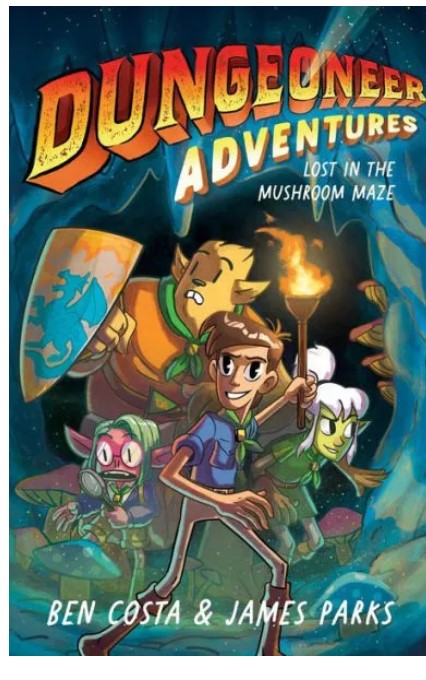
Lost in the Mushroom Maze
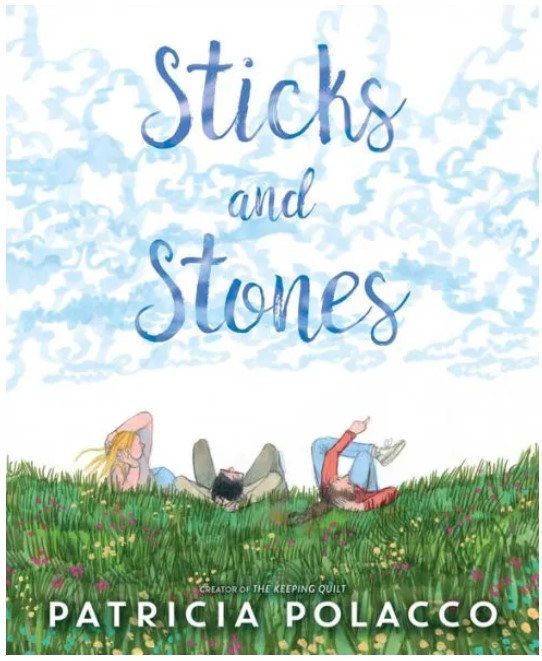
Sticks and Stones
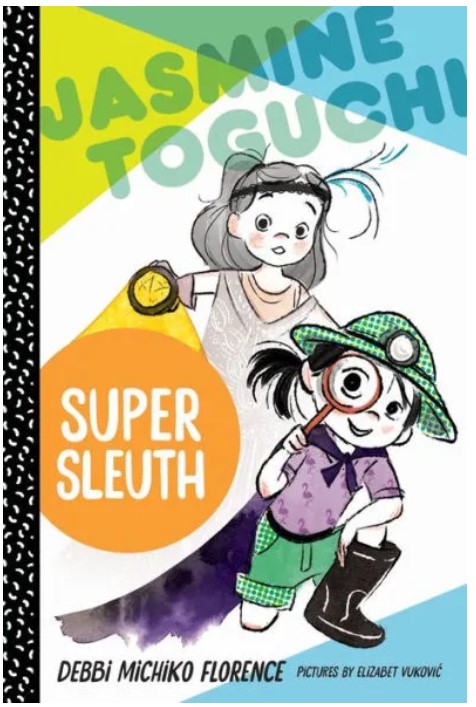
Jasmine Toguchi, Super Sleuth
